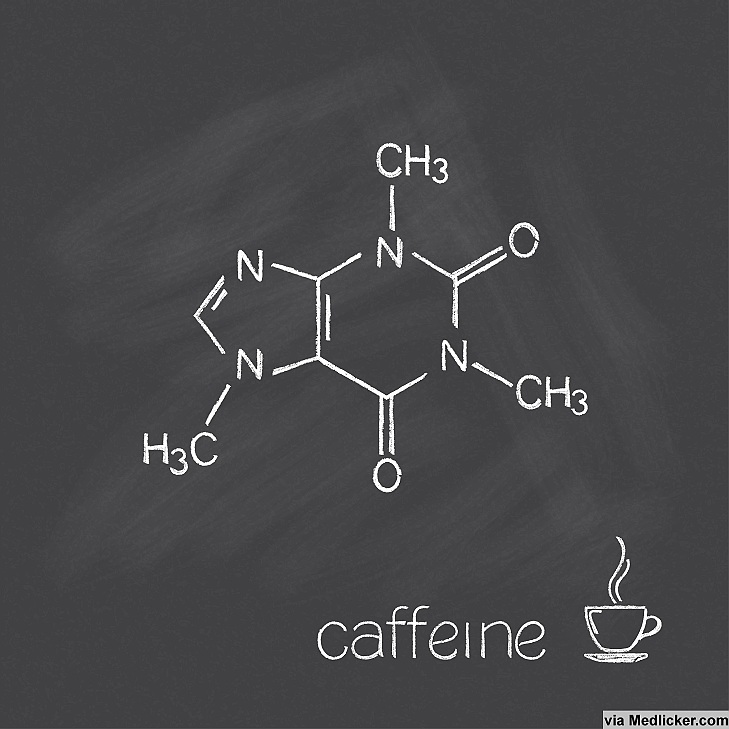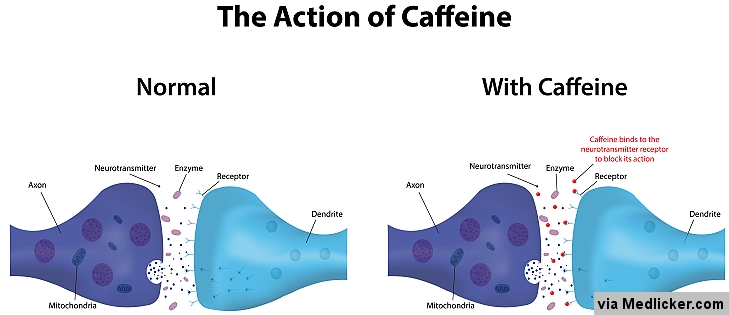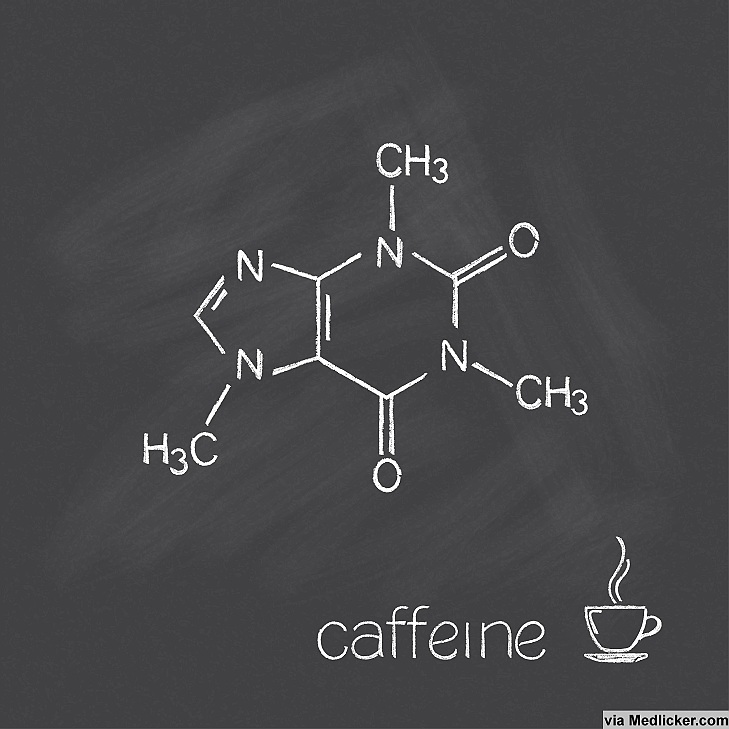Zoloft-caffeine interactions
This article provides a detailed overview of Zoloft and caffeine interactions. It features essential information for people taking Zoloft. Before you take any medication you should always read prescription leaflets of the drug manufacturer carefully and follow the instructions of your doctor and pharmacist. Do not skip taking your medicine without prior permission of your doctor.
Zoloft and its effects
Zoloft is the trademark name for sertraline. Sertraline falls in a class of drugs known as selective serotonin reuptake inhibitors (SSRIs). This drug typically works as an antidepressant. It can also be used to treat depression, obsessive-compulsive disorder, panic disorder, anxiety disorders, a severe form of premenstrual dysphoric disorder (PMDD), post-traumatic stress disorder (PTSD) and social anxiety disorder (social phobia). This medicine can also improve your mood, appetite, sleep, and energy level and may assist you in restoring your interest in daily living. It may decrease anxiety, fear and unwanted thoughts. It may also reduce the urge to perform similar tasks repetitively (compulsions such as hand-washing, checking, and counting) that interfere with everyday living.
How Zoloft works?
Zoloft works by affecting the balance of neurotransmitters (chemicals that transmit signals in the brain). Specifically, it restores the balance of serotonin –a neurotransmitter- in the brain. It increases the levels of serotonin in the brain. Serotonin acts as a mood booster in the brain. It negates the bad mood, hence leaving more of the "right mood" to hold over. Raised serotonin levels can help improve mood, reduce anxiety, panic attacks, and treat OCD. The full response to this medication may not appear until after 4 weeks of treatment or longer, although improvements may occur earlier.
Caffeine and its effects:
Caffeine is a substance that exists naturally in certain plants. It can also be synthetically manufactured. It is found in tea, coffee, guarana, chocolates (including hot chocolate drinks), mate, and other products. Certain soft drinks also contain caffeine. Over-the-counter stimulants like NoDoz, Vivarin, Caffedrine, and others may have caffeine in them.

Caffeine is a water soluble compound, due to which body absorbs and distributes it very quickly. It can spread throughout all body cells and can be found in any of cells at any given time. Caffeine travels directly into the bloodstream from the stomach, and easily passes through cell membranes. It is very difficult for the body to remove caffeine from the cells and remains in body for several days after ingestion. Caffeine is the world's most widely consumed psychoactive drug. It is metabolic and central nervous system stimulant. It has multiple effects in the body are listed below:
- It restores alertness and can be used both medically and recreationally to reduce physical fatigue.
- It is a frequently used additive in over the counter cold remedies, pain relievers and appetite suppressants. It may increase the effectiveness of gastrointestinal uptake of these medications.
- It produces wakefulness, increased focus, faster flow of thought, and better general body coordination.
- Caffeine affects sleep and may slightly decrease sleep. It improves performance during sleep deprivation, but can cause subsequent insomnia.
- Caffeine is one of the most commonly used stimulants among athletes. In athletics, it can improve sprint, endurance and sports performance. Optimum consumption of caffeine is allowed by the National Collegiate Athletic Association (NCAA).
- It may act as a diuretic, which means it may increase the urine output.
- Caffeine creams can be applied to the skin to reduce itching and redness in dermatitis.
- Caffeine is used intravenously for treating migraine headaches after epidural anesthesia.
- Caffeine can also be helpful in weight loss.
- Some people use caffeine for breathing disorders.
- Caffeine may increase levels of neurotransmitters such as dopamine, acetylcholine, serotonin, norepinephrine, glutamate and epinephrine.
- Metabolic rate can be increased by caffeine.
- Caffeine is found to be associated with a decreased risk of Parkinson's disease, and can be used in the treatment of Parkinson’s disease motor symptoms.
- Caffeine lowers the risk of developing type 2 diabetes.
- Caffeine may be a healthful antioxidant that protects against some free radicals inside the body.
The amount of caffeine needed to produce various effects varies from person to person and depends upon body size and degree of tolerance of a person. Caffeine’s effect begin as early as less than an hour after consumption, and departs in roughly five hours.
How caffeine works?
Caffeine is chemically similar to adenosine. Adenosine is a type of sugar that helps in the firing of neurotransmitters. It controls mood, excitability and mental focus. Due to close similarity, caffeine takes the place of adenosine in the brain, and order neurons to fire more rapidly, hence caffeine's stimulating effects on central nervous system.

How do Zoloft and caffeine interact?
Doctors recommend that Zoloft and caffeine should not be taken in conjunction with one another; as together these two drugs would counteract one another. For instance, if you are taking zoloft for an anxiety disorder or bipolar disorder, caffeine could impact these conditions. If you already have an anxiety disorder, too much caffeine may cause you to feel jittery. Likewise, if you have bipolar disorder and is already manic or hypomanic, caffeine could increase your energy level even more. This is what was thought previously but newer researches have shown that Zoloft can actually potentiate the action of caffeine.
When Zoloft and caffeine are ingested together, Zoloft reacts with caffeine levels in a patient's blood. It can affect and decrease the clearance of caffeine in body by something as high of 90%. It increases the half-life of caffeine in the body and creates a marked increase in the total serum caffeine content. This will finally result in “caffeine intoxication”. Therefore, even if the patient consumes caffeine on a regular basis, his chances of experiencing caffeine intoxication increases.
Caffeine intoxication
Caffeine intoxication is a condition that can result in a state of central nervous system over-stimulation. It can present as a spectrum of clinical symptoms. Many of these originate in the circulatory and central nervous systems. The symptoms of caffeine intoxication are comparable to the symptoms of overdoses of other stimulants and are directly related to the ingestion of caffeine. The "Diagnostic and Statistical Manual of Mental Disorders" published by the American Psychiatric Association defines caffeine intoxication as the demonstration of 5 or more characteristic signs of distress or impaired function associated with the consumption of caffeine. The characteristic signs and symptoms of caffeine intoxication vary, depending on the person and the amount of caffeine consumed.
Intoxication often creates feelings of restlessness, fidgeting, nervousness, anxiety, loss of appetite, heart palpitations, tiredness, shortness of breath, insomnia and excitement progressing to mild delirium. Incoherent flow of thought and speech, depression, lapses in judgment, disorientation, disinhibition, periods of inexhaustibility and agitation are also common. Other symptoms include increased flushing of the face, urination, stomach trouble or pain, nausea and vomiting, muscle twitching, rapid heart rate and psychomotor agitation. Sensory disturbances, diuresis, elevated respirations, gastric irritation and cardiac irregularities, delusions, hallucinations and psychosis can also be present.
In severe cases, caffeine intoxication can lead to potentially life-threatening signs and symptoms, such as convulsions caused by respiratory failure, rhabdomyolysis (breakdown of skeletal muscle tissue), irregular heartbeat, seizures and severe electrolyte imbalances. Immediate medical evaluation and treatment is needed in this situation. However, fatalities of caffeine intoxication are rare because gastric irritation and vomiting often develop before complete absorption of caffeine in the body.
Hyperglycemia (high blood sugar) and ketonuria (presence of ketone bodies in urine) associated with caffeine toxicity have also been reported. These findings may be attributed to a stress reaction.
How to diagnose a case of caffeine intoxication?
If you let your doctor know that you consumed both Zoloft and caffeine together prior to experiencing the symptoms, he may get an idea that you are suffering from caffeine intoxication and may begin treatment. Otherwise, he will take your detailed history and will ask about your symptoms. In addition, your respiratory rate, heartbeat, and blood pressure will be monitored. Your temperature may also be taken. You may be given a urine or blood test too. Evaluation of caffeine on blood, plasma, serum or urine confirms a diagnosis of caffeine intoxication. Normal plasma caffeine levels are usually in the range of 2–10 mg/L. To label a case as a case of caffeine intoxication, caffeine levels should be between 40–400 mg/L in plasma and greater than 15 mg/L in the urine.
Following tests are also helpful in determining the condition of the patient and in management plan:- Complete blood count (CBC)
- Serum electrolyte
- Glucose
- Blood urea nitrogen (BUN)
- Creatinine concentrations
- Total creatine kinase (CK) concentrations
- Dipstick urinalysis
- Rapid urine drug screen
- Arterial blood gas analysis.
- Chest radiograph – In patients of caffeine intoxication with complains of chest pain, fever, altered mental status, or respiratory disturbances.
- Computed tomography (CT) scans of the head – In patients with seizures or altered mental status.
- Electrocardiography (ECG) – In patients with signs and symptoms of chest pain, palpitations, tachycardia, or an irregular heartbeat.
How to treat a case of caffeine intoxication?
If the symptoms are mild, you may recover soon. But if the signs and symptoms of caffeine intoxication are severe, immediate medical treatment becomes necessary. The primary purpose of treatment is to get the caffeine out of your body while managing the signs and symptoms. Both pre and post hospital care becomes necessary in severe cases. Pre-hospital care is primarily supportive. It includes administration of oxygen and monitoring of pulse, blood pressure, temperature, respiratory rate and heart (if possible).
- ABC (Airway, Breathing and Circulatory) management: Administer oxygen, attach cardiac monitors, and perform ECG and other lab tests. As caffeine is a bronchodilator, it generally does not result in respiratory compromise, but in patients who are ineffective to keep an adequate air passage, due to altered mental status, seizures or severe cardiovascular depression, endotracheal intubation is indicated.
- Treat hypotension: Hypotension can occur in caffeine intoxication due to volume depletion or excessive catecholamine stimulation. Phenylephrine (alpha agonist) is a good choice drug to treat hypotension.
- Treat dysrhythmias: Treatment of dysrhythmias is complex and depends upon the nature and severity of the dysrhythmia and the patient's clinical presentation. Mild dysrhythmia can be treated with supportive care. Severe dysrhythmias require medication.
- Medical interventions: Objectives of medical intervention are stabilization of heart rate and blood pressure, seizure control, decontamination, and correction of electrolyte disturbances. These aims can be accomplished by the use of following medicines:
- Benzodiazepines: Lorazepam. This drug helps in seizure control.
- Vasopressors: Phenylephrine and dopamine. These medications help to increase blood pressure and manage hypotension.
- Beta-blockers: For example esmalol. These drugs help in the treatment of dysrhythmias associated with caffeine intoxication.
- Calcium channel blockers: Like beta blockers they are used in the treatment of dysrhythmias.
- Antiarrhythmics: Amiodarone or lidocaine (Xylocaine) is the best drug to treat arrhythmias.
- Activated charcoal: It adsorbs caffeine and limits the absorption of caffeine into the systemic circulation. It is most efficacious when administered within 1 hour of caffeine consumption.
- Antiemetics: Prolonged vomiting following caffeine intoxication demands antiemetic.
- Intravenous fluids: Intravenous fluids are administered to treat rhabdomyolysis.
- Treat metabolic disturbances: Metabolic disturbances include hyperglycemia, rhabdomyolysis and hypokalemia. Supportive care usually corrects these symptoms.
- Gastric lavage: Gastric lavage is a procedure that uses a special tube to wash the contents out of stomach. As caffeine gets absorbed rapidly, this procedure is unlikely to be useful.
- Hemodialysis: Process of removing caffeine from the blood using machines, known as hemodialysis, is the ultimate treatment of extremely severe cases of caffeine intoxication.
What is the prognosis for caffeine intoxication?
The prognosis of caffeine intoxication is excellent. Prognosis largely depends upon the timing of treatment. Those patients with caffeine intoxication who reach a medical facility in time fully gets recovered. When treatment is provided too late, irreversible health problems and even death can occur.
What are the complications of caffeine intoxication?
How you can prevent caffeine intoxication?
Additional resources
| Written by: | Michal Vilímovský (EN) |
|---|---|
| Education: | Physician |
| Article resources: | Ncbi |
| Image resources: | Dollarphotoclub.com |
| Published: | October 16, 2014 at 8:26 AM |
| Next scheduled update: | October 16, 2016 at 8:26 AM |
Get more articles like this in your inbox
Sign up for our daily mail and get the best evidence based health, nutrition and beauty articles on the web.


Ache in left arm that you should not ignore
Alkaline water dangers: why you should not drink it
How to Avoid Sleepiness While Studying?
23 Foods That Increase Leptin Sensitivity
Low dopamine (e.g. dopamine deficiency): causes, symptoms, diagnosis and treatment options
Swollen taste buds: the ultimate guide to causes, symptoms and treatment
Thin endometrial lining: causes, symptoms, diagnosis and treatment
Pimples inside nose: the complete guide
Holes in tonsils: definition, symptoms, treatment and prevention
How to deal with an ingrown hair cyst
Allegra vs. Zyrtec vs. Claritin
Allergy to penicillin and alternative antibiotics
How to get rid of phlegm (excessive mucus) in throat? Detailed guide to medical and home remedies, symptoms and causes
What causes stomach ache after meals?
Liver blood test results explained